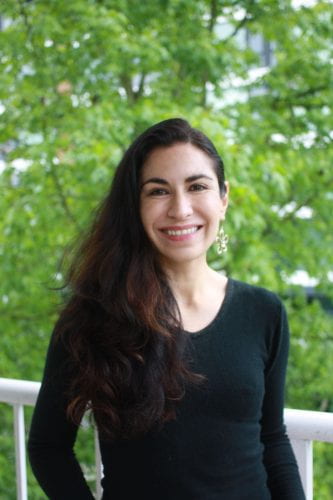CEF extends a well-earned congratulations to Dr. Belén Noroña for being selected as a recipient of the 2020-2021 Andrew W. Mellon Post-Doctoral Fellowship. This fellowship is made possible by generous funding from the Andrew W. Mellon Foundation and offers one academic year of support to recent graduates of the University of Oregon who study interdisciplinary fields in the Environmental Humanities. Fellows receive financial support as well as opportunities to offer a public lecture, attend regular Center research colloquia, and pursue independent research and writing. See below to read more about this year’s recipient and her amazing research:
Belén Noroña is an Ecuadorian researcher, educator and activist working at the intersection of social science and rural development. Belén obtained a doctorate in Human Geography in 2019 from the University of Oregon and will continue her doctoral research between 2020 and 2021 as a post-doctoral fellow at the Center for Environmental Futures, also at the University of Oregon. In her scholarship, Belén seeks to legitimize female indigenous non-western ways of knowing and thinking. Her current research engages with women’s dreams and storytelling she collected between 2017 and 2018 in the Amazon of Ecuador. These narratives illustrate how marginalized communities living near oil extractive sites experience and cope with state and oil related violence. She argues that the participation of marginalized women is imperative to understand how extractive activities such as oil generate racism and gender discrimination in systemic ways.
In addition to producing academic publications, Belén will make her results available to a wider public by coordinating her efforts with the Pachaysana Foundation. Pachaysana, an Ecuadorian NGO that Belén cofounded in 2014, specializes in fair-trade and informal public education. Diverse publics in Ecuador and the U.S. will be able to engage with Belén’s research through community-based art works (such as paintings and experimental theater) produced by rural Ecuadorian communities working with Pachaysana.

